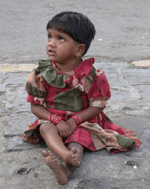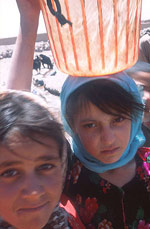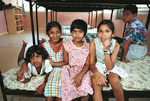dignity of children programme
| Background The WCC has been working on children’s issues since 1995, following a recommendation made at the-then Unit IV (Sharing and Service Team) Commission meeting in Alexandria, Egypt that the issue of "excluded and marginalized children" be a first working priority, with an emphasis on street children, child labour, child prostitution, child abuse, disabled children and children in situations of conflict. As a result, a team-wide working group was set up to find ways to implement this recommendation through the promotion of the following three criteria: |
|
|
1
The rights and dignity of children (marginalized children). The working group organized international consultations held in 1996 (Geneva), 1997 (Brazil) and 2000 (Geneva) focussing mainly on forming a network for the exchange of experiences, resources and understanding between the children themselves and Christian groups working with them. The Padare Programme at the 1998 WCC Assembly in Harare gave momentum to the "‘Dignity of Children" programme as it displayed the role that WCC could play in co-ordination and mediation between children, member churches and other ecumenical bodies working with children, and in equipping member churches to approach the children’s issues. Since 2001, the WCC regional desks have taken over the responsibility for the "Dignity of Chidren" programme. These region-based programmes have focused on bringing together and motivating churches and church-related organization who are already working - or would like to work - with marginalized children. Inter-regional consultation The WCC Asia desk and the Christian Conference of Asia(CCA) organised an inter-regional consultation from 21-25 January 2004 in Mumbai on the theme "Affirming the fullness of life and dignity of children" with a special focus on street children. This consultation attempted to: a. from other regions, such as Africa, Latin America, the Pacific, the Caribbean and Europe, especially regarding work with street children, in order to strengthen such work in Asia. b. from within Asia, particularly from the National Networks in order to give national perspectives c. from children themselves. Child Rights Information Network UN Convention on the Rights of the Child |
| |
|
|
|
|
|
|
|
|



